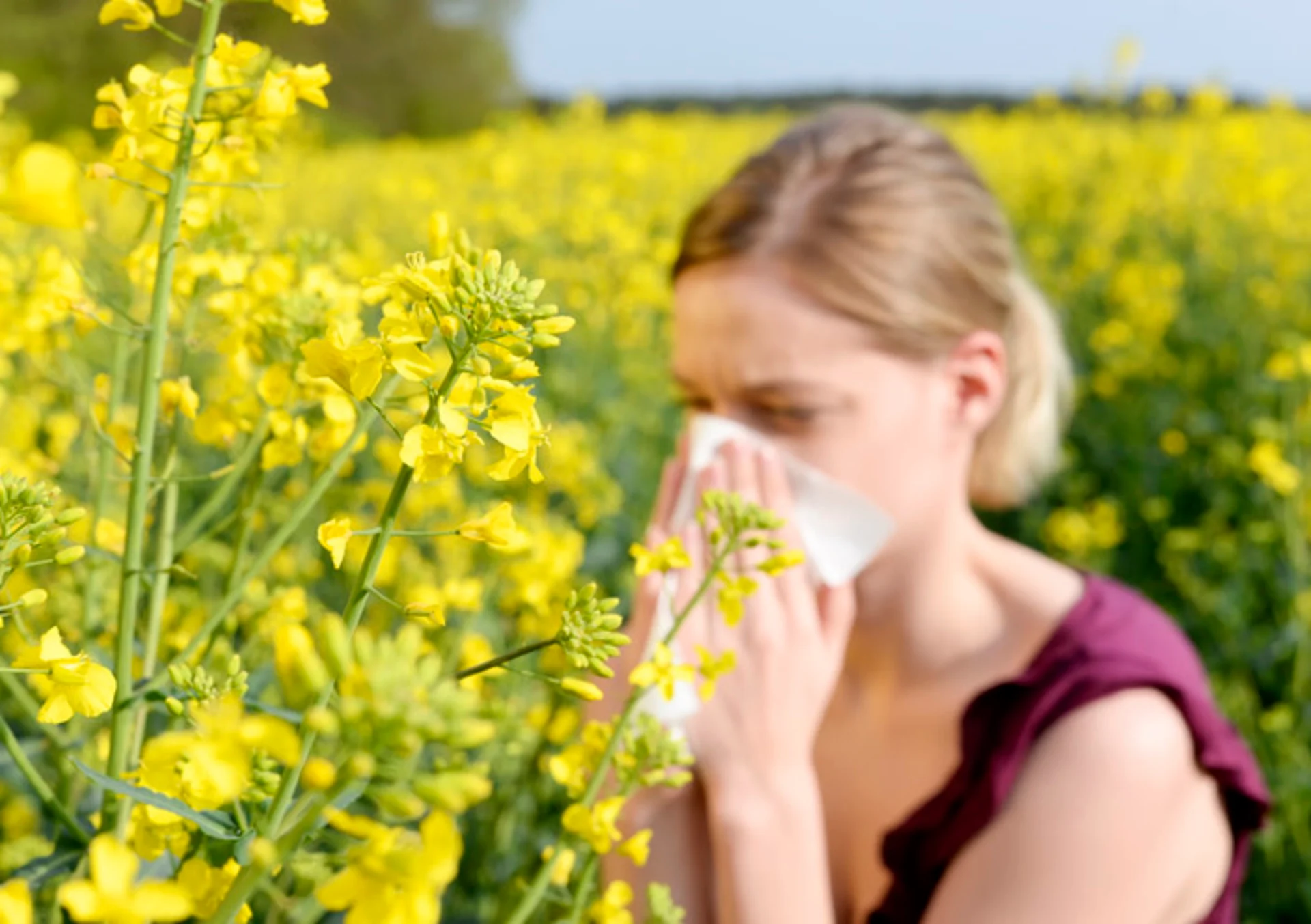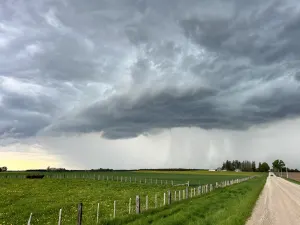
Allergy fact or fiction: Busting myths about your allergies
We sorted through what's true and what's false

"About 25 to 30 per cent of all Canadians suffer from seasonal allergies of some kind," says allergist Dr. Susan Waserman, professor in the Division of Clinical Immunology and Allergy at McMaster University in Hamilton, and the annual spring misery is already blowing in the wind. Along with the pollen itself, a lot of misinformation about springtime allergies is floating around.
Let’s clear the air about some myths and facts about allergies to help you breathe easier!
Here are the facts, according to Waserman, and Dr. David Fischer, past president of the Canadian Society of Allergy and Clinical Immunology (CSACI).
MYTH: Hay fever is not a real thing. There is no hay and there is no fever!
Well, it’s for real! Just ask anyone suffering from spring allergies. According to Waserman, allergic rhinitis (AR) is commonly known as hay fever. “The name came about because symptoms would strike during hay harvesting season when these pollens would be in the air. It has nothing to do with hay specifically – allergic rhinitis means swelling, and inflammation of the nose.”
MYTH: Mould allergies only strike outdoors.
Not true! Mould is present indoors, too, in any area of dampness, including basements, bathrooms, in the cabinet under sinks, as well outdoors on dead leaves or uncut grass, says Waserman. “Outdoor moulds are often forgotten about as causes of allergies and can be a major trigger for asthma. However, large exposures to indoor moulds can also be detrimental,” adds Fischer.
MYTH: You'll outgrow your seasonal allergies.
This one’s unpredictable, says Fischer. “Some do and some don’t and there is no predictive tool to determine who those individuals will be.” But don’t lose hope. Waserman adds that seasonal allergies generally first develop in childhood and can change over time, and she’s seen some sufferers outgrow them.

FACT: Pollen counts can predict bad allergy days.
True. In general, levels of pollens correlate with symptom severity, says Waserman, so it may be helpful to monitor pollen counts so you can limit your exposure on days where counts are high. “It may also help you adjust medication to control symptoms.” The counts are reported for specific plants such as trees, grasses, weeds, and mould spores.
MYTH: Allergies and asthma can be cured.
False. Unfortunately, there is no cure for allergies or asthma, says Waserman. “There are however very effective treatments that allow people to live active lives,” including antihistamine pills, nasal steroid sprays, and eye drops. She adds that exposure to pollens, or house dust mites, in the form of shots or tablets, can desensitize the immune system to tolerate these allergens and eliminate symptoms.
MYTH: Allergies don't happen in the winter.
False. Allergies can happen in any season and will happen at various times of the year, says Fischer. Indoor moulds, house dust mites, and pets are indoor allergens which are there all year round.
MYTH: Only shots will help with allergies.
Not true. “Depending on what your allergies are, allergen avoidance, and medications such as antihistamine tablets and intranasal steroids are both very effective allergy treatments,” says Waserman. Desensitization in the form of shots and sublingual (under the tongue) tablets are both effective at treating symptoms and may help to change the immune system so that it no longer reacts to the allergen.
MYTH: All nasal steroids and antihistamines are addictive and you’ll build a resistance to them.
False. “Nasal steroids take longer to work but are not addictive,” says Fischer. He often hears from patients that they’re “getting used to antihistamines,” which isn’t the case, as studies don’t support this. When pollen counts get high, an antihistamine pill may just not be enough to tackle symptoms so allergy sufferers need to reach for other relief like nasal sprays, eye drops, and some may choose to explore immunotherapy.
This article is based on interviews conducted by Joanne Richard on behalf of The Weather Network with Dawn Jurgens, Director of Operations at Aerobiology Research Laboratories, an expert in aerobiology, from March 29 - April 2, 2019, and with Dr. David Fischer, past president of the Canadian Society of Allergy and Clinical Immunology (CSACI), an expert in allergic rhinitis, from March 27 - April 3, 2019.









